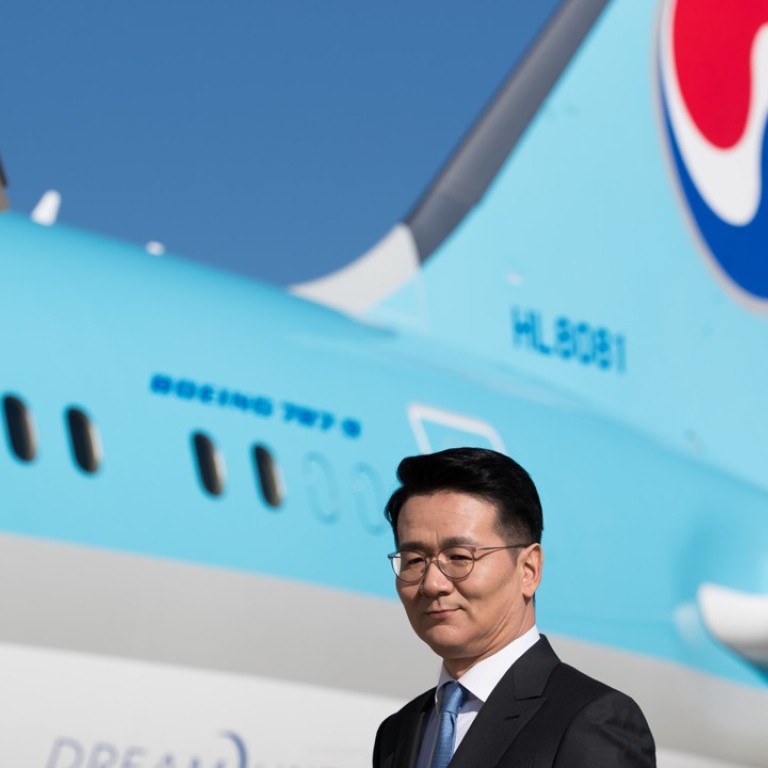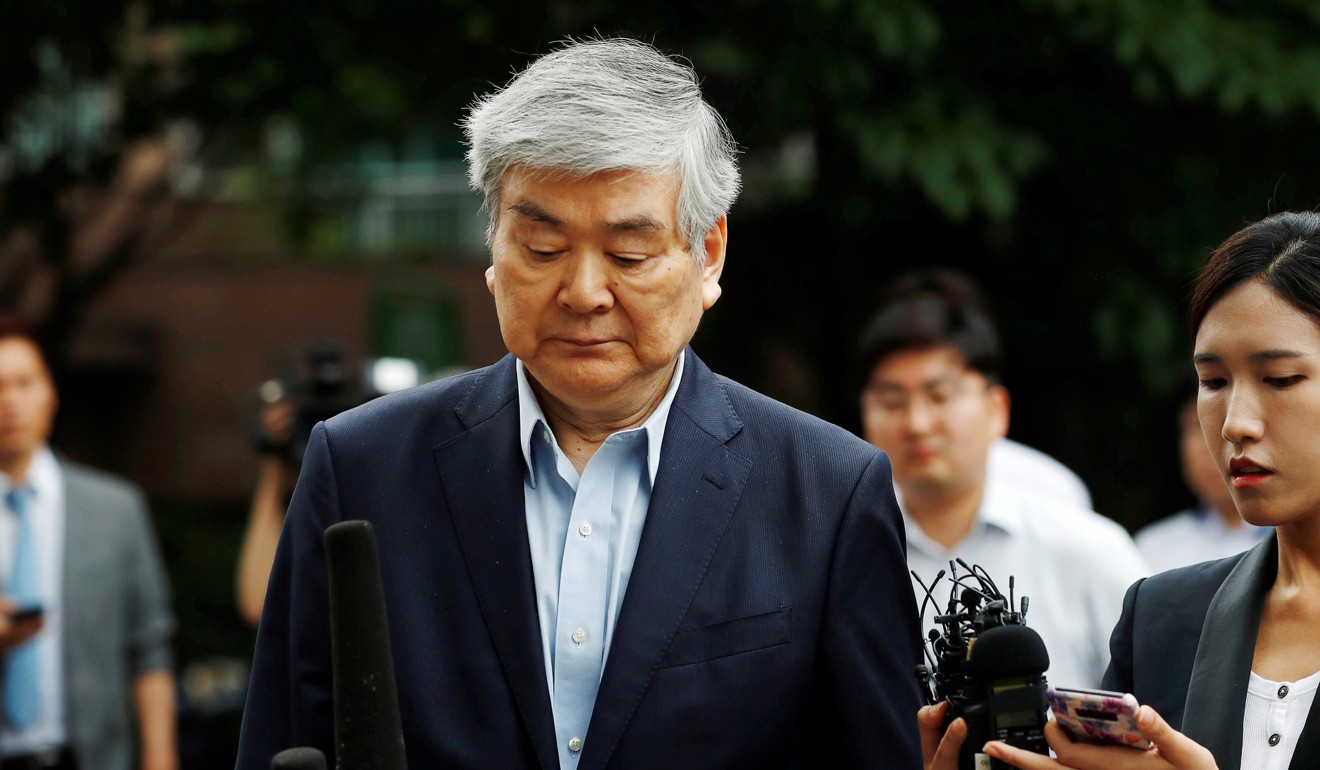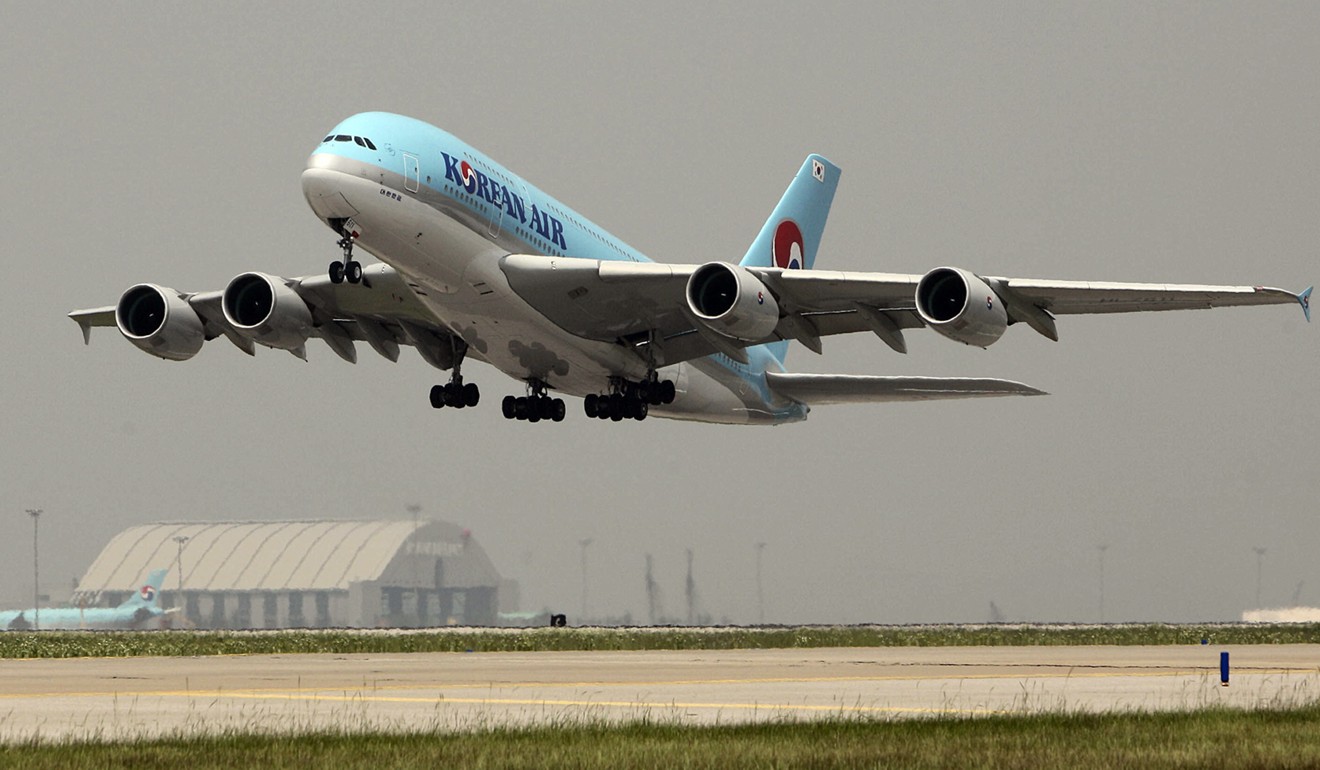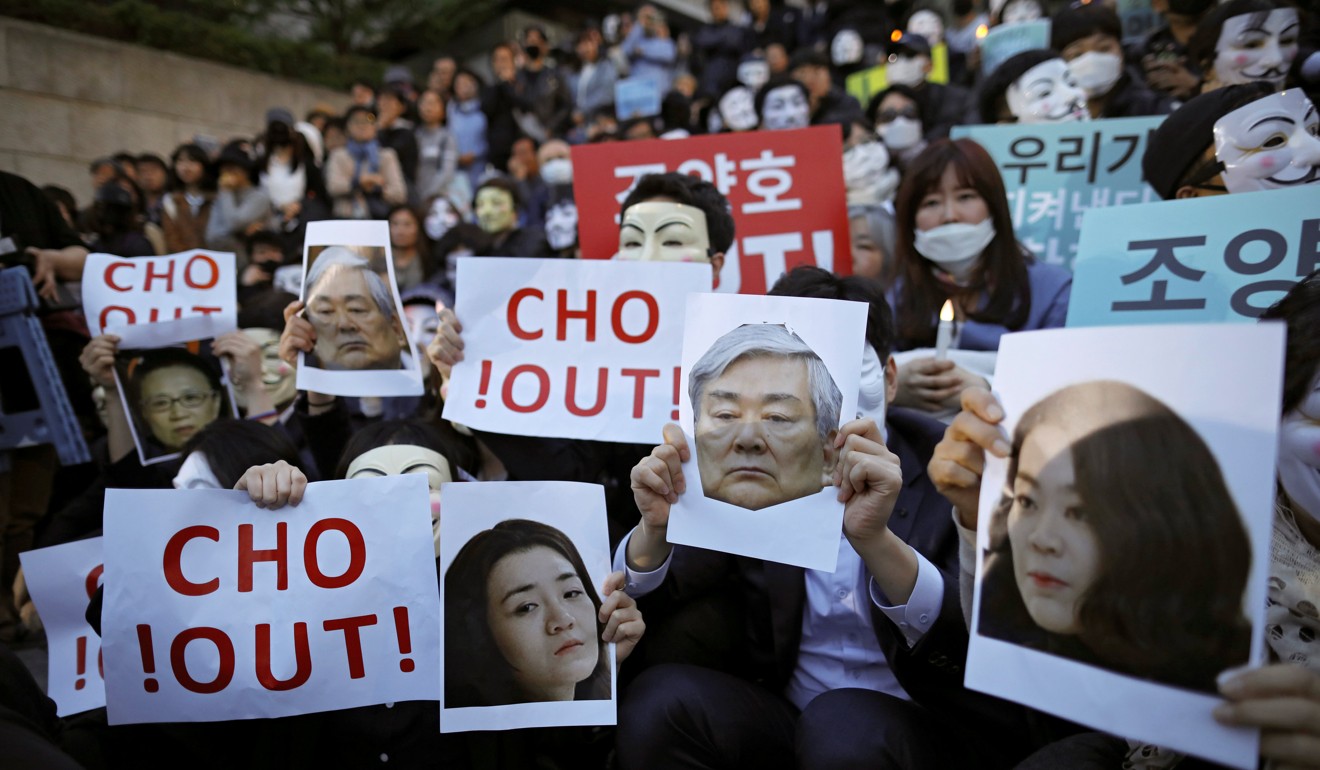
Korean Air ‘struggling’ to return to days of booming mainland Chinese market amid US-China trade war tensions
- South Korea’s national carrier was hit hard when Seoul’s deployment of US missile defence system THAAD angered Beijing
- Now it is gearing up for fallout from the US-China trade war, says its president
Korean Air is still “struggling” to return to the days when mainland China was its top-performing international market, as geopolitical flashpoints continue to dog its business, one of the carrier’s top executives has said.
Korean Air boss indicted for embezzlement in latest scandal to hit controversy-plagued airline
Now, the airline that is among the world’s top 10 in terms of cargo carried is seeking to benefit from changing trade flows by “looking at alternative markets between the US and China”, Cho told a media round table at the Association of Asia Pacific Airlines’ annual summit in Jeju on Friday.
“Trade tensions in the world will have some effects, but we [have not] seen it yet,” said Cho, the scion of the scandal-ridden family that owns the carrier. His father Cho Yang-ho, the airline’s chairman and chief executive officer, was indicted on October 15 on embezzlement and other charges.
“I see the constraints coming up in a very short time,” said the younger Cho, also known as Walter. “However, we are preparing for it.”

Lee Jae-woon, an aviation law and policy expert at the Chinese University of Hong Kong, said that in addition to the airline’s cargo business suffering, the number of Chinese travellers would also fall if the trade war intensified.
Korean Air has for the past few years relied heavily on China-South Korea and China-US traffic. The carrier serves 25 destinations on the mainland.
“The downturn in the local market and the launch of more direct China-US flights has obviously impacted Korean Air,” said Brendan Sobie, chief analyst at CAPA-Centre for Aviation.
The carrier would need to “adjust its China strategy” by finding new markets and using smaller planes to fly to and from China to match supply with demand, Sobie said.
More trouble for disgraced Korean Air family as chairman is questioned over suspected tax evasion
Lee said that last year’s tourist boycott, sparked after Seoul decided to install the Terminal High Altitude Area Defence (THAAD) system that Beijing views as a national security threat, should have been “a good lesson” for Korean carriers not to rely too heavily on one market.
Almost half of South Korea’s 17 million tourists in 2016 were mainland Chinese. Some were lured by its cheap duty-free luxury goods that can be sold at a high profit back home. The number of Chinese arrivals plummeted to about 4.1 million in 2017. As of August, about 3.05 million mainland Chinese had visited this year, slightly more than the same period in 2017.

Walter Cho said Japanese visitor numbers were “steadily gaining momentum” compared to last year, while flights from Seoul to the US and Europe were “very good”.
The carrier is eyeing more partnerships with airlines in Asia but aspires towards expanded direct access to the mainland, with more routes and perhaps better terms for the code-share flights it has with state-backed carriers China Eastern and China Southern, which are respectively based in Shanghai and Guangzhou.
Easing tensions on the Korean peninsula have also given Cho cause for hope. He described the positive momentum of North-South talks aimed at getting Pyongyang to relinquish its nuclear weapons as a “relief” for citizens and a “very good sign” for businesses.
After Korean Air ‘nut rage’ exec steps down, airline chief’s wife allegedly caught on camera harassing employees
If all goes well, “we will have a very big opportunity [to go] into North Korea,” he said. But he was cautious about the possibility of direct flights between the two Koreas, pointing out that there was no evidence yet of pent-up demand for the route.
“Once the political situation gets better, hopefully there will be some traffic generated and we’ll take a shot at it.”
Meanwhile, the airline is planning to take a short cut to and from Europe by flying over North Korea, saving fuel costs, Cho said. He would not commit to when this might happen but said the airline would need to be “careful” given ongoing US sanctions on Pyongyang.
Asked about the impact of his father’s indictment on the family, he replied: “We’re still fine … we’re OK”.

But he was silent when asked about public sentiment towards the airline and powerful families like his own which control some of South Korea’s largest business empires, known as chaebol.
On Thursday, he and his father, who prosecutors allege embezzled more than 20 billion won (US$17 million) by awarding business contracts to companies owned by his family, looked relaxed as they mingled with airline industry executives, guests and media at a summit event.
Cho’s sister Cho Hyeon-min, aka Emily, was cleared on Monday of charges relating to throwing a drink at someone during a business meeting. His other sister, Cho Hyun-ah, aka Heather, famously served time in 2015 for throwing a mid-flight tantrum after a flight attendant gave her nuts in a bag rather than on a plate.

